Bostchon vs. Nova Scotia Duck Tolling Retriever: Breed Differences and Similarities
Temperament
What are the personalities of Bostchon and Nova Scotia Duck Tolling Retriever dogs?
Playful
Sensitive
Intelligent
Friendly
Affectionate
Lively
Gentle
Aggressive
Cheerful
Affectionate
Courageous
Gentle
Responsive
Alert
Energetic
Playful
Shedding Level
Do Bostchons shed more than Nova Scotia Duck Tolling Retrievers, or which breed sheds more, Bostchons or Nova Scotia Duck Tolling Retrievers?
Bostchon or Nova Scotia Duck Tolling Retriever dogs are not heavy shedders, but they will lose a significant amount of hair each year. To decrease the amount of shedding, you can regularly brush your Bostchon or Nova Scotia Duck Tolling Retriever. This will remove loose hair and keep their coat growing in the same direction.
Watchdog Ability
Which dog breed makes a better watchdog, the Bostchon or Nova Scotia Duck Tolling Retriever?
Bostchons aren't great guard dogs; they tend to just watch without taking action.
Nova Scotia Duck Tolling Retrievers are decent watchdogs - they'll alert their owner if something seems amiss.
Origin
What is the origin of Bostchon and Nova Scotia Duck Tolling Retriever dog breeds?
United States
Canada
Ancestry
What are the origins of Bostchon and Nova Scotia Duck Tolling Retriever breeds?
Bichon Frise and Boston Terrier
Cocker Spaniels, farm Collies, Irish Setters
Date of Birth
When were Bostchon and Nova Scotia Duck Tolling Retriever breeds first developed?
Unknown
19th Century
Eye Color Possibilites
What are the eye colors of Bostchon and Nova Scotia Duck Tolling Retriever dogs?
Brown
Hazel
Brown
Amber
Nose Color Possibilites
What are the natural nose colors of Bostchon and Nova Scotia Duck Tolling Retriever?
Black
Black
Brown
Coat Color Possibilites
What are the natural colors of the coat for Bostchon and Nova Scotia Duck Tolling Retriever breeds?
Black
White
Brindle
Brown
Red
Coat Length
What is the typical coat length for Bostchon and Nova Scotia Duck Tolling Retriever breeds?
Bostchons are known for their coat length.
Nova Scotia Duck Tolling Retrievers have medium-length coats.
Coat Density
What is the density of the coat of Bostchon and Nova Scotia Duck Tolling Retriever?
Coat Texture
What is the hair texture of Bostchon and Nova Scotia Duck Tolling Retriever?
Curly
Straight
Litter Size
What is the usual litter size for Bostchon and Nova Scotia Duck Tolling Retriever?
A Bostchon can have a litter of 2-5 puppies on average. However, it's worth noting that the size of the litters can vary greatly. Factors that can influence litter size include the health of the mother, breeding history, and genetics.
A Nova Scotia Duck Tolling Retriever can have a litter of 12-14 puppies on average. However, it's worth noting that the size of the litters can vary greatly. Factors that can influence litter size include the health of the mother, breeding history, and genetics.
Adaptability
Bostchon and Nova Scotia Duck Tolling Retrievers are known for their adaptability and versatility. They are capable of adapting well to a wide range of lifestyle changes and living environments, making them great companions for families and individuals of all lifestyles.
Health Issues
Between Bostchon and Nova Scotia Duck Tolling Retriever, which breed is more prone to health problems?
While the Bostchon breed is generally healthy, occasional vet check-ups are still necessary to address any health concerns.
Nova Scotia Duck Tolling Retrievers typically have low vet costs due to their good health, but it's important to monitor their health and seek vet care when necessary.
Major Concerns
What are the major health concerns for Bostchon and Nova Scotia Duck Tolling Retriever breeds?
Patellar Luxation
Hip Dysplasia
Progressive Retinal Atrophy (PRA)
Minor Concerns
What minor health issues should be kept in mind when owning Bostchon and Nova Scotia Duck Tolling Retriever?
Distichiasis
Cataracts
Esophageal Achalasia
Hydrocephalus
Persistent Right Aortic Arch
Patent Ductus Arteriosus
Collie Eye Anomaly (CEA)
Occasional Tests
What occasional tests are recommended for Bostchon and Nova Scotia Duck Tolling Retriever breeds?
Blood
Biopsy
Orthopedic
Brain Auditory Evoked Response (BAER)
Internal Imaging (x-ray, CT scan, MRI, etc.)
Ophthalmic
Oral
OFA
CERF
Hearing Tests
Energy
How do the energy levels of Bostchons and Nova Scotia Duck Tolling Retrievers compare?
Bostchons are suitable for those with a balanced lifestyle as they have an average energy level.
Nova Scotia Duck Tolling Retrievers thrive on an active lifestyle due to their high-energy nature.
Social Needs
Bostchon vs Nova Scotia Duck Tolling Retriever social needs comparison
Bostchon has very high social needs and requires regular mental and physical stimulation, a job or purpose, and companionship.
Nova Scotia Duck Tolling Retriever has above average social needs and thrives with interaction with humans and other dogs.
Exercise Needed
Bostchon vs Nova Scotia Duck Tolling Retriever exercise need comparison.
Bostchons need moderate physical activity and are great for families and active individuals.
Nova Scotia Duck Tolling Retrievers require significant physical activity and suit those with an active lifestyle.
Sleeping Need
Which of the two sleeps the most/least: Bostchon or Nova Scotia Duck Tolling Retriever?
Bostchons have moderate energy levels and typical sleep patterns of 12-14 hours per day.
Nova Scotia Duck Tolling Retrievers are active and require sufficient sleep to stay healthy.
Tendency to Bark
Do Bostchons or Nova Scotia Duck Tolling Retrievers bark more/less frequently?
Bostchon and Nova Scotia Duck Tolling Retrievers tend to bark moderately, they bark when necessary, such as to alert their owner or to communicate something. They may also bark due to certain triggers like fear, alarm, boredom, greeting, separation anxiety and compulsive barking.
Mouthiness
Mouthiness Comparison: Bostchon vs Nova Scotia Duck Tolling Retriever?
Roaming urge
Bostchon vs Labrador: Running away tendency?
Prey Drive
Bostchon or Nova Scotia Duck Tolling Retriever - which breed has a higher level of prey drive?
Activity Level
Which breed has higher energy, Bostchons or Nova Scotia Duck Tolling Retrievers?
Bostchons are medium-energy dogs and typically enjoy socializing and playing casual or even sustained games of chase with other dogs. They may also have occasional periods of barking or racing around the house.
Nova Scotia Duck Tolling Retrievers are high-energy dogs. They need mental as well as physical exercise. These dogs require a lot of your involvement and without it they can, and will, become problematic dogs.
Tolerance of being left alone
Walks per Week
How many miles should Bostchon or Nova Scotia Duck Tolling Retriever walk each week?
There's really no limit to how far you walk your dog as long as they're comfortable. For Bostchon, it's at least 6 miles / week. Just remember to build distance and stamina gradually over time.
There's really no limit to how far you walk your dog as long as they're comfortable. For Nova Scotia Duck Tolling Retriever, it's at least 10 miles / week. Just remember to build distance and stamina gradually over time.
Activity per Day
Do Bostchons or Nova Scotia Duck Tolling Retrievers require more exercise?
Both Bostchon and Nova Scotia Duck Tolling Retriever typically require a minimum of 60 minutes of exercise each day. The exercise can be spread throughout the day and may involve high-energy activities like walking, running, and playing.
Grooming
Which breed is easier to maintain in terms of grooming, Bostchons or Nova Scotia Duck Tolling Retrievers?
The Bostchon requires an average amount of grooming compared to other breeds.
The Nova Scotia Duck Tolling Retriever has low grooming needs and is easy to maintain.
Brushing Frequency
What is the recommended brushing frequency for Bostchon and Nova Scotia Duck Tolling Retriever dogs?
Ideally, Bostchon should be brushed at least 2 or 3 times a week (preferably daily) improve shedding.
Nova Scotia Duck Tolling Retriever should be brushed at least once a week. Of course you can give them more frequent brushes if you find that they are still shedding a lot
Brushing Tools
What brushing tools are used for Bostchons and Nova Scotia Duck Tolling Retrievers?
Slicker Brush
Comb
Scissors
Nail Clipper
Pin Brush
Dematter
Comb
Nail Clipper
Cups
How much food should be given to Bostchon or Nova Scotia Duck Tolling Retriever in cups?
For an average 14-18 pound (6 - 8 kg) Bostchon feed 1 cups daily. But, keep in mind, the amount you feed is going to be dependent on the quality of the food you are feeding.
For an average 44-51 pound (20 - 23 kg) Nova Scotia Duck Tolling Retriever feed 2.3 cups daily. But, keep in mind, the amount you feed is going to be dependent on the quality of the food you are feeding.
Daily Cost
Which breed has a higher daily cost, Bostchon or Nova Scotia Duck Tolling Retriever?
The average cost of a Bostchon is somewhere $1.10 - $1.40 per day.
The average cost of a Nova Scotia Duck Tolling Retriever is somewhere $1.70 - $2.00 per day.
Monthly Cost
Which breed has a higher monthly cost, Bostchon or Nova Scotia Duck Tolling Retriever?
The average per month expenses of a Bostchon is between $28 - $42. This makes an average of $336 - $504 per year. It will be on the higher side when the dog is still small because it will need more frequent visits to the vet, shots.
The average per month expenses of a Nova Scotia Duck Tolling Retriever is between $48 - $63. This makes an average of $576 - $756 per year. It will be on the higher side when the dog is still small because it will need more frequent visits to the vet, shots.
Intelligence
Comparing Intelligence: Bostchons vs Nova Scotia Duck Tolling Retrievers
Bostchons are average in obedience intelligence but have a high IQ and may cause trouble if left unsupervised.
Nova Scotia Duck Tolling Retriever has below average obedience intelligence, but they excel in understanding human emotions.
Sensitivity Level
How do Bostchon and Nova Scotia Duck Tolling Retriever compare in sensitivity?
This breed is sensitive to its environment and best suited for patient and understanding families with a consistent routine.
Nova Scotia Duck Tolling Retrievers have average emotions and adapt well to different situations.
Affection Dependance
Which is the more affectionate dog breed: Bostchon vs Nova Scotia Duck Tolling Retriever?
Apartment Friendly
Which breed is more apartment-friendly: Bostchon or Nova Scotia Duck Tolling Retriever?
Bostchons make excellent apartment dogs, being fairly active indoors and not requiring a yard.
Nova Scotia Duck Tolling Retrievers are good apartment dogs as long as they get enough exercise and stimulation outside of the apartment.
Child Friendly
Do Bostchons or Nova Scotia Duck Tolling Retrievers have a friendlier temperament towards children?
The typical characteristics of Bostchon and Nova Scotia Duck Tolling Retriever indicate that this breed of dog is an ideal companion for kids and makes them family pets. Their gentle and protective nature and calm mentality make them gel along quickly with the younger humans.
Senior-friendly
Which dog is more suitable as a pet for the elderly - Bostchon or Nova Scotia Duck Tolling Retriever?
Cat Friendly
Do Bostchon or Nova Scotia Duck Tolling Retriever breeds have a better compatibility with cats?
Bostchons are very friendly with cats and make great companions for them.
Nova Scotia Duck Tolling Retrievers are average in their friendliness toward cats and tend to do well with them, especially if raised together.
Dog Friendly
Which breed is more sociable with other dogs: Bostchon or Nova Scotia Duck Tolling Retriever?
Bostchons and Nova Scotia Duck Tolling Retrievers are very friendly towards other dogs. This breed typically have a happy and affectionate temperament around dogs.
Pet friendly
How do Bostchon or Nova Scotia Duck Tolling Retriever dogs interact with other pets?
Stranger Friendly
Which breed is more friendly with strangers: Bostchon or Nova Scotia Duck Tolling Retriever?
Bostchons are highly friendly around strangers.
Nova Scotia Duck Tolling Retrievers are quick to announce strangers and can be standoffish or suspicious.
Playfulness
Which breed is more playful between Bostchon and Nova Scotia Duck Tolling Retriever?
Bostchons are a playful breed that needs daily playtime to be happy.
Nova Scotia Duck Tolling Retrievers are very playful, so adopting an older one might be a better option for a more relaxed experience.
Trainability
How do the trainability levels of Bostchons and Nova Scotia Duck Tolling Retrievers compare?
Bostchons are usually easy to train but require consistency to fully obey commands.
Nova Scotia Duck Tolling Retrievers are popular for their ease of training and quick learning ability.
Compare Bostchon with other breeds

English Toy Chin Spaniel
Bostchon vs English Toy Chin Spaniel

Chi-Poo
Bostchon vs Chi-Poo

Afghan Sheepdog
Bostchon vs Afghan Sheepdog
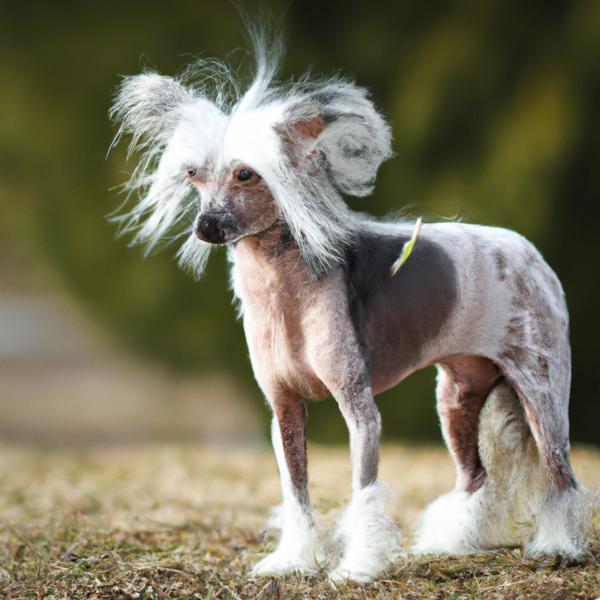
Chinese Crested
Bostchon vs Chinese Crested
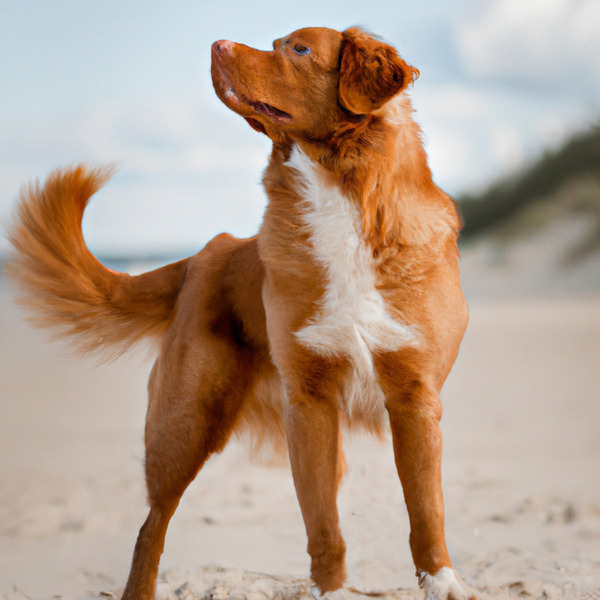
Nova Scotia Duck Tolling Retriever
Bostchon vs Nova Scotia Duck Tolling Retriever

Ibizan Hound
Bostchon vs Ibizan Hound

Silky Pug
Bostchon vs Silky Pug

Shelestie
Bostchon vs Shelestie
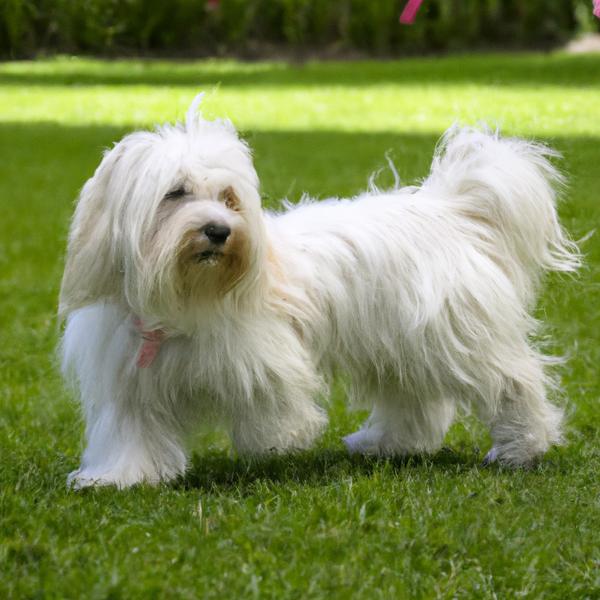
Norwich de Tulear
Bostchon vs Norwich de Tulear
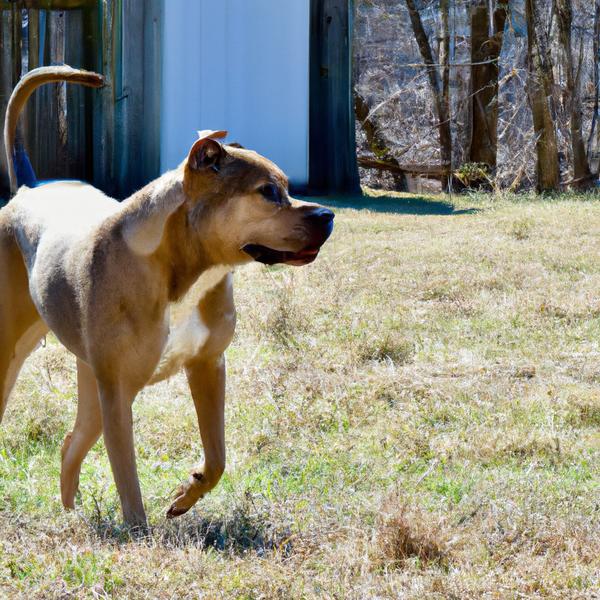
Shepherd Pit
Bostchon vs Shepherd Pit
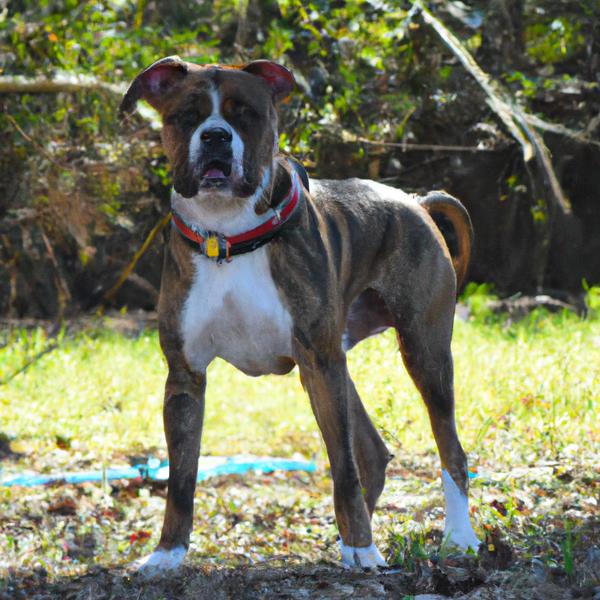
Bowzer
Bostchon vs Bowzer

Irish Wolfhound
Bostchon vs Irish Wolfhound
